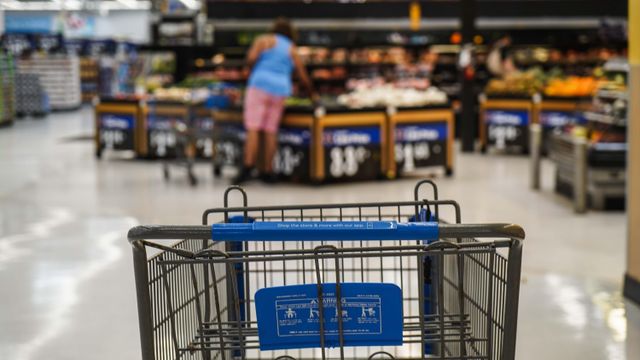North Carolinians hurting financially, pessimistic about economic future, WRAL News Poll shows
A WRAL News survey of North Carolina adults shows residents are cutting back on purchases and activities to offset higher prices.
Posted — UpdatedThe survey of 1,100 adults in the state, conducted in partnership with SurveyUSA from Sept. 28 through Sunday, found 42% of residents were pessimistic about the economic outlook for their families over the next 12 months and 37% were optimistic. Twenty-one percent of respondents were unsure.
Forty-three percent of respondents said their families were worse off financially compared to a year ago, while just 15% said they are better off. Thirty-eight percent saw their family’s finances as about the same as a year ago.
To address rising prices, the vast majority of North Carolinians — 92% — are adjusting their spending habits.
The poll reported a credibility interval of 3.5 percentage points. A credibility interval is similar to a margin of error but takes into account more factors and is considered by some pollsters to be a more accurate measurement of statistical certainty.
Which side stands to benefit politically?
Factors such as increased borrowing costs, a stock market that has plunged about 22% this year and, most notably, surging consumer costs — including rising prices for gasoline, food and housing — have caused many North Carolinians to tighten spending. Many are looking to politicians for answers.
Chris Cooper, a Western Carolina University political scientist, sees voters’ economic concerns as a boon to Republicans in a competitive election year in a state with lots of undecided voters who may be frustrated with President Joe Biden’s handling of the economy. That could translate to votes for Republicans at the state level.
“The economy is an area where the Republicans are going to benefit over the Democrats,” Cooper said. “The bad news for the economy is good news for Republicans.
The WRAL News poll on Thursday shows the economy as a greater priority for Republicans than Democrats. Republicans were nearly twice as likely as Democrats to have a pessimistic outlook on their family’s economic outlook and report being worse off financially over the past year.
The economy has become a top issue in some of the closest races in the state, including a Triangle-area congressional contest in the newly drawn 13th district and a statewide U.S. Senate race.
Republicans have argued they are better equipped to combat inflation, while Democrats have cited the newly enacted Inflation Reduction Act as a solution for getting the country’s finances in order.
The competitive race between Budd and Beasley indicates a multitude of factors are weighing on voters. Asked about the top issue on their mind, the issue of abortion came as a distant second for North Carolina voters.
“It makes it really hard to make firm predictions, but clearly this race in North Carolina is going to go down to the wire,” said Heye, a Republican strategist and former communications director for the Republican National Committee who worked on three successful North Carolina U.S. Senate campaigns.
Changing behaviors amid higher costs
Nearly three in four respondents said they believe the United States is currently in a recession.
The U.S. this year reported its highest levels of inflation in four decades, with year-over-year costs for goods rising by more than 8%. The effects have been felt at the gas pump, grocery store and in real estate.
In the past week, the average cost of a regular gallon of gas in North Carolina has risen by 2.2% to $3.39, according to the American Automobile Association. While prices have dropped from their June peaks of $4.67, they remain higher than the $3.04 customers paid a year ago.
The Federal Reserve has responded by raising interest rates in an effort to cool inflation. Higher borrowing costs reduce demand for goods, ultimately lowering prices of things such as homes and cars.
Thursday’s WRAL poll showed that 92% of North Carolinians are adjusting their lives to deal with rising costs by putting off major purchases, cutting back on driving and traveling, spending less on events and activities, cutting back on food purchases or some combination of those.
Thirty-six percent of respondents reported at least two of those changes in their consumer behavior. North Carolinians who listed one change in behavior overwhelmingly cited putting off major purchases.
Responses to the shifts in spending habits were similar for Democrats, Republicans and independents.
“On the economy, it seemed like, in general, Republicans are more concerned than Democrats,” Cooper said. “But when it got to the question about how your attitudes and behaviors are changing and what is the impact of higher prices on your household, a lot of that gap narrows.”
Related Topics
• Credits
Copyright 2024 by Capitol Broadcasting Company. All rights reserved. This material may not be published, broadcast, rewritten or redistributed.






